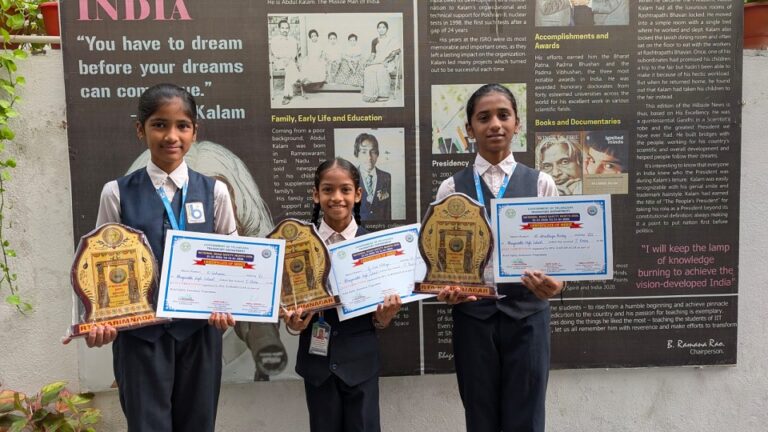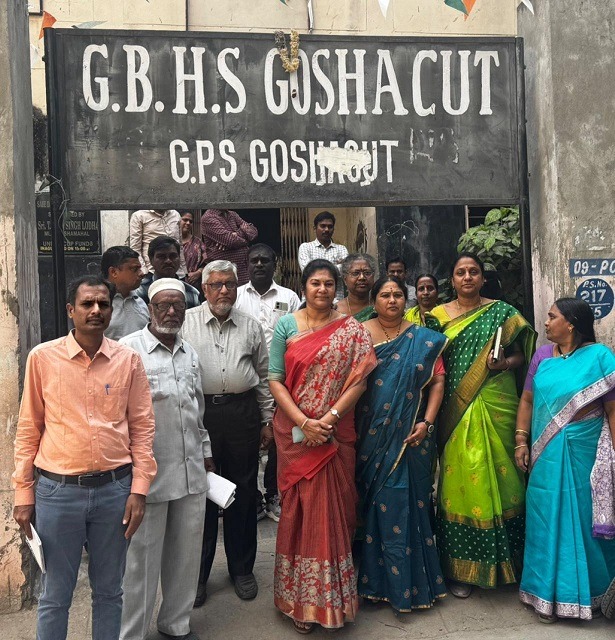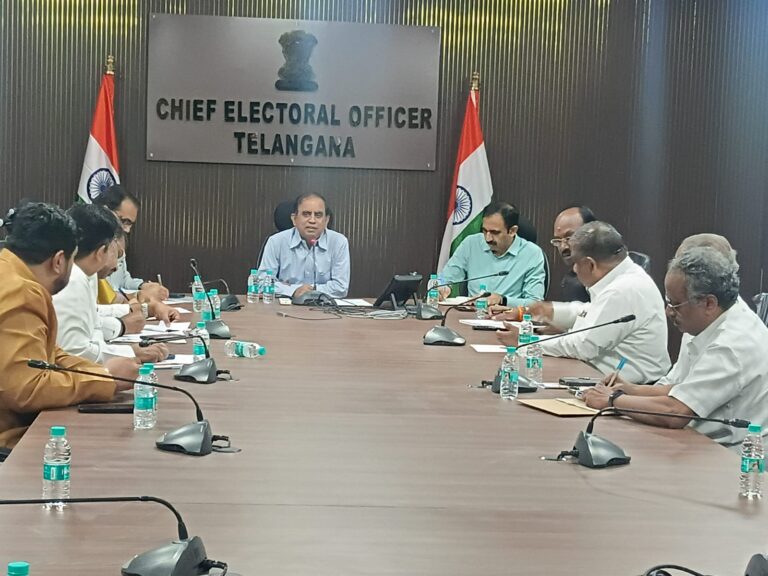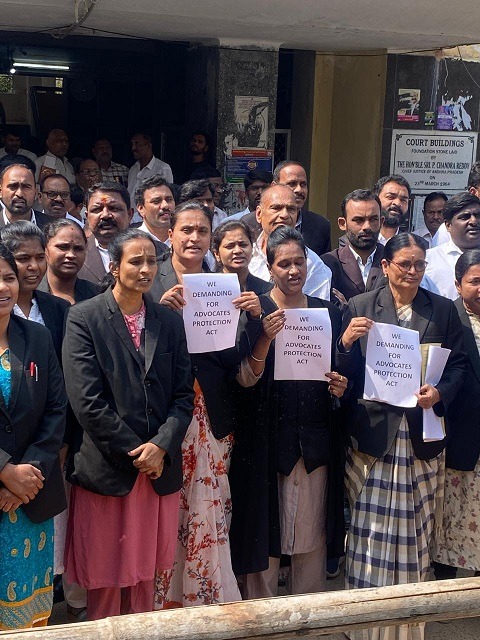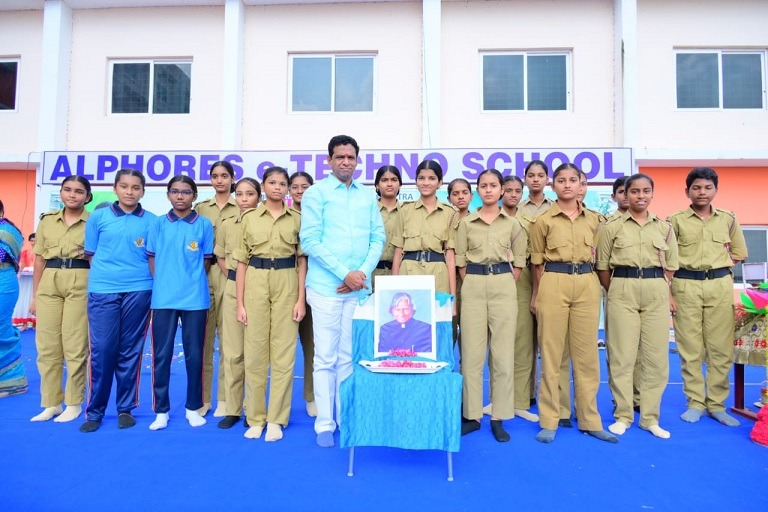
KARIMNAGAR, OCTOBER 15, 2025: Alphores educational institutions in Karimnagar town celebrated the birth anniversary of former President and Bharat Ratna Dr APJ Abdul Kalam, which is observed as World Students’ Day on October 15, to honour his contributions to education and the youth.
Alphores Educational Institutions Chairman V. Narender Reddy launched the celebrations by paying floral tributes to the portrait of Dr Kalam at Alphores e-Techno School, Kothapalli, Karimnagar town, on Wednesday. The celebration is a tribute to his legacy as a teacher, scientist, and former President, and one of the country’s most admired scientists. The day is marked as a tribute not only to his achievements in science and public service but also to his lifelong commitment to inspiring and guiding students.

On this occasion, Mr Narender Reddy said that Mr Kalam was born on October 15, 1931, in the small town of Rameswaram, Tamil Nadu. Mr Avul Pakir Jainulabdeen (APJ) Abdul Kalam came from a humble background. His father was a boat owner and Imam at the local mosque, while his mother managed the household.
Despite limited means, young Kalam’s curiosity and determination were evident from an early age. He completed his schooling at Schwartz Higher Secondary School, Ramanathapuram, and went on to graduate in physics from St Joseph’s College, Tiruchirappalli, in 1954. Driven by his fascination with flight, he pursued aeronautical engineering at the Madras Institute of Technology (MIT).
Kalam began his career at the Defence Research and Development Organisation (DRDO) in 1960, working on hovercraft prototypes, before moving to the Indian Space Research Organisation (ISRO), where he directed India’s first satellite launch vehicle (SLV-III).
Under his leadership, India successfully launched the Rohini satellite into orbit in 1980 — a milestone that established India’s indigenous space capabilities. He later returned to DRDO to lead the country’s integrated missile programme, earning him the title of ‘Missile Man of India’.
In 2002, Dr. Kalam became India’s 11th President, serving until 2007. His tenure was marked by accessibility, humility, and a strong connection with citizens — especially the youth. He transformed the largely ceremonial role into an active platform for dialogue and inspiration, often addressing students and urging them to dream big. His vision for India, outlined in his book India 2020, revolved around transforming the country into a developed nation through education, science, and innovation.
Even after his presidency, Kalam remained deeply engaged with academic and research institutions. He frequently addressed students across India, often beginning his talks with stories from his own life — about perseverance, teamwork, and the power of imagination. One of his officially recorded interactions was in Tiruppur in 2003, where he spoke about “noble leadership” and “indomitable spirit.”
During his later years, Kalam set himself a personal goal of meeting and motivating over one lakh students across the nation. He believed that India’s development depended on the creativity and courage of its youth, and he saw education as the most powerful tool to unlock that potential.

